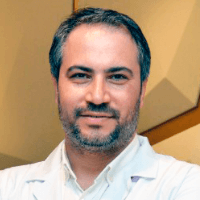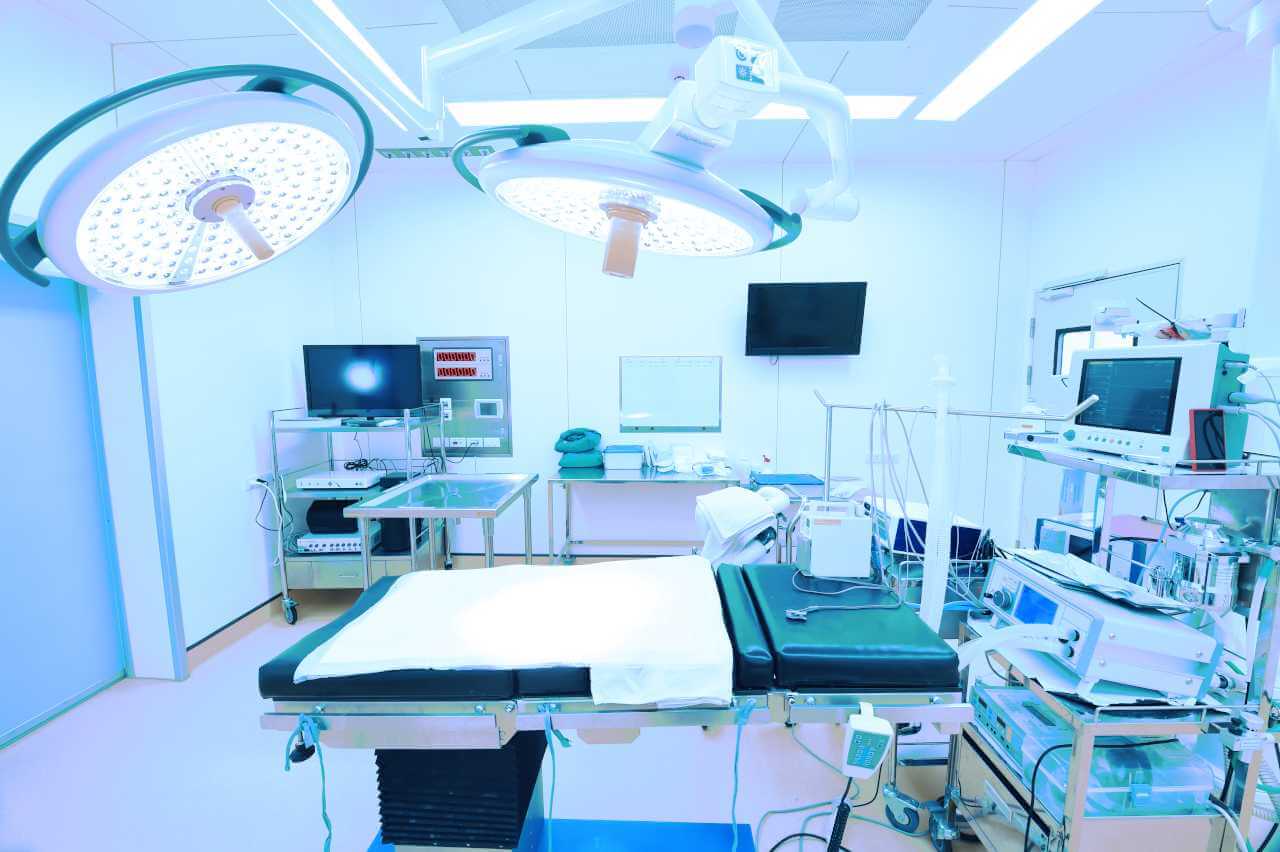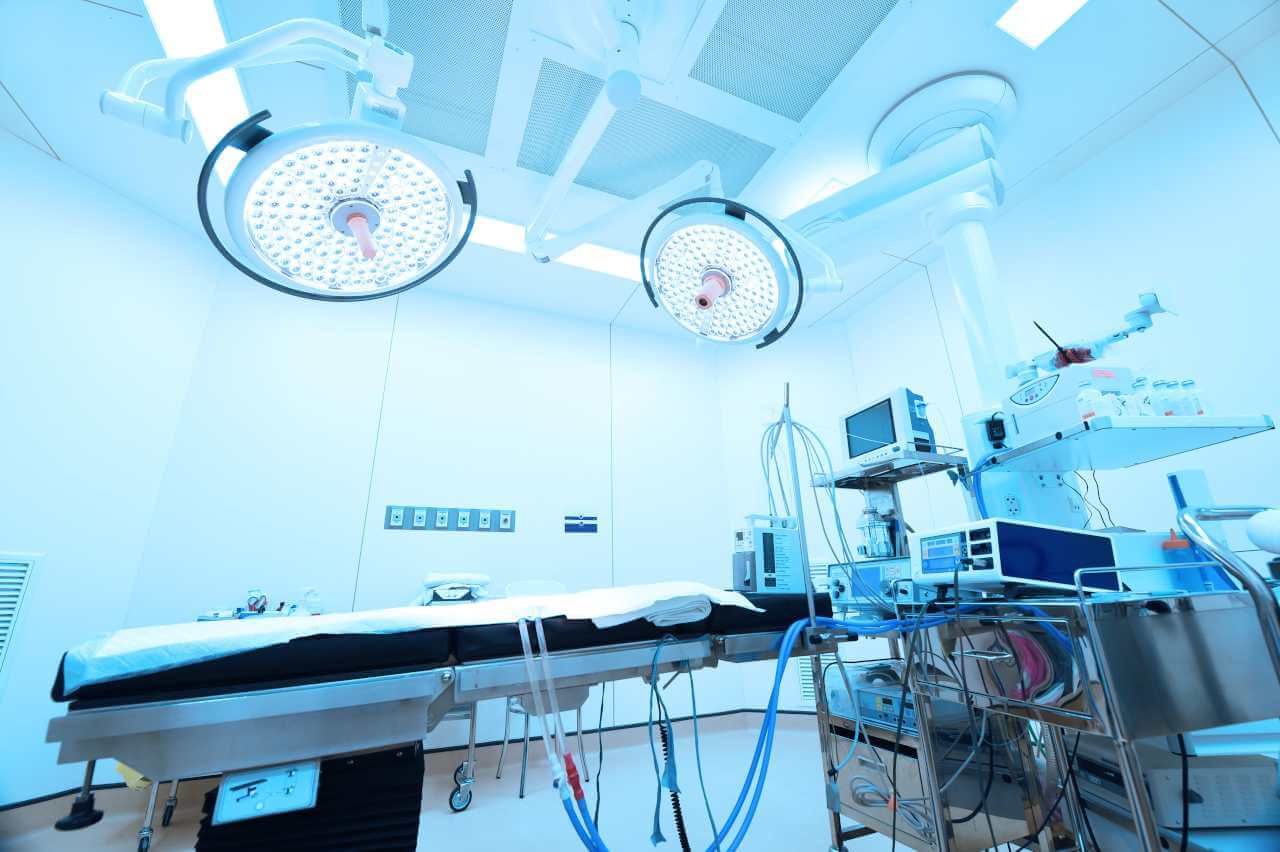
The program includes:
- Initial presentation in the clinic
- clinical history taking
- review of medical records
- physical examination
- laboratory tests:
- complete blood count
- biochemical analysis of blood
- indicators of inflammation
- indicators blood coagulation
- ophthalmologic examination:
- retinal examination
- gonioscopy
- slit-lamp examination
- pupil function tests
- ocular motility test
- ophthalmoscopy
- perimetry (visual field test)
- computer perimetry
- visometry (without correction and with correction)
- keratometry
- pachymetry
- refractometry (objective, subjective, cycloplegic)
- autorefractometry
- non-contact tonometer
- biomicroscopy
- preparation according to preoperative standard
- treatment of cataract and glaucoma with
ultrasound phacoemulsification - symptomatic treatment
- nursing staff services
- elaboration of further recommendations
Required documents
- Medical records
Service
You may also book:
 BookingHealth Price from:
BookingHealth Price from:
About the department
The Department of Adult and Pediatric Ophthalmology at the Memorial Bahçelievler Hospital Istanbul provides the full range of high-quality diagnostic and therapeutic services for patients with eye diseases. The medical facility has the necessary medical and technical resources, as well as competent staff to serve patients of all age groups. The patients with common, rare and especially complex eye pathologies can receive medical care here. The department has state-of-the-art laser systems, which allow them to effectively correct refractive errors without surgery. It also specializes in corneal transplantation and oculoplastic surgery. The department is headed by Dr. med. Mahmut Odabasi.
The therapeutic process begins with a consultation with the attending physician, during which the patient tells in detail about his complaints. Then the doctor studies the patient's medical history and prescribes a set of necessary diagnostic examinations for obtaining comprehensive clinical information. The department carries out all modern diagnostic tests, including standard visual acuity test and fundus assessment, ultrasound examination, Doppler scanning, optical coherence tomography, electroretinography, keratography, tonometry, biomicroscopy, autorefractometry and others. The diagnostic results serve as the basis for the establishment of an accurate diagnosis and development of an optimal treatment regimen aimed at improving vision.
The department's specialists keep pace with innovations in medicine, thanks to which the treatment is as effective, sparing and safe as possible. For example, cataract surgery is performed using sutureless phacoemulsification technique under eye drop anesthesia. The clinical practice involves the use of such laser techniques as LASIK, LASEK, PRK, FLEX, SMILE and others. To perform corneal transplantation, the doctors use donor material, which is available in the Eye Banks.
Special attention should be paid to ophthalmological care for children, which is provided by a specially trained team of pediatricians. The doctors carry out regular eye screenings in infants and small children to exclude such complex pathologies as retinopathy of prematurity, congenital cataract, glaucoma, tear duct obstruction, strabismus, myopia, hyperopia and astigmatism. The department's specialists also select glasses and contact lenses for children suffering from visual loss.
The department's key clinical focuses include:
- Diagnostics and treatment of cataract
- Diagnostics and treatment of glaucoma
- Diagnostics and treatment of refractive errors (refractive surgery)
- Myopia
- Astigmatism
- Hyperopia
- Presbyopia
- Diagnostics and treatment of retinal and vitreous diseases
- Retinal detachment
- Retinal dystrophy
- Diabetic retinopathy
- Retinal tear
- Retinal degeneration
- Age-related macular degeneration
- Retinitis
- Hypertensive retinopathy
- Retinal tumors
- Retinal hemorrhage
- Vitreous body destruction
- Diagnostics and treatment of eyelid diseases
- Blepharitis
- Gordeol
- Chalazion
- Benign and malignant eyelid tumors
- Xanthelasma
- Ectropion
- Entropion
- Ptosis
- Blepharospasm
- Diagnostics and treatment of ophthalmic diseases in children
- Retinopathy of prematurity
- Congenital cataract
- Congenital glaucoma
- Tear duct obstruction
- Refractive errors (myopia, hyperopia, astigmatism)
- Strabismus
- Diagnostics and treatment of other ophthalmic pathologies
Curriculum vitae
Higher Education
- 2007-2011 Internship, Department of Ophthalmology, Şişli Etfal Training and Research Hospital, Istanbul, Turkey.
- 2001-2007 Study of Human Medicine, Faculty of Medicine, Uludağ University, Bursa, Turkey.
Professional Career
- Since 2020 Chief Physician of the Department of Adult and Pediatric Ophthalmology at the Memorial Bahçelievler Hospital Istanbul, Istanbul, Turkey.
- 2014 - 2020 Ophthalmologist in the Department of Ophthalmology at the Medipol Mega University Hospital, Istanbul, Turkey.
- 2012 - 2014 Ophthalmologist in the Department of Ophthalmology at Arnavutköy State Hospital, Istanbul, Turkey.
Scientific Publications and Reports
- 9 publications in international peer-reviewed journals.
- 7 publications in national peer-reviewed journals.
- Author of 1 chapter of the book.
- 2 oral presentations.
- 20 poster presentations.
Memberships in Professional Societies
- Turkish Medical Association (TTO).
- Turkish Ophthalmological Association (TOD).
- European Society of Cataract and Refractive Surgeons (ESCRS).
Photo of the doctor: (c) Memorial Bahçelievler Hospital
About hospital
The Memorial Bahçelievler Hospital Istanbul is an advanced multidisciplinary medical center that began its clinical practice in 2018. It is part of the world famous Memorial Healthcare Group. The hospital was designed in accordance with the very latest standards of modern architecture with the aim of providing top-class medical services in a pleasant and patient-oriented environment. It is worth noting that the interior of the medical facility is full of live plants, which have a positive impact on people and their mood. The hospital is awarded the prestigious LEED Platinum Certificate, confirming the highest level of environmental friendliness and safety of the buildings of the medical complex.
The hospital has 320 beds for patient hospitalization. The medical and technical base of the hospital is one of the best and most advanced in Turkey – modern diagnostic rooms with MRI, CT, PET-CT scanners, gamma cameras, X-ray equipment, mammography systems and other equipment, 15 operating rooms, including for robot-assisted, endoscopic and hybrid surgical interventions, intensive care units, etc. The hospital also has a high-performance state-of-the-art Elekta Versa HD SIGNATURE system for radiation therapy.
The powerful technical resources of the hospital are complemented by a highly professional medical staff, who have achieved significant success not only at the national level, but also in the international medical arena. The doctors and nursing staff of the hospital are distinguished by excellent medical qualifications, as well as humane and compassionate attitude towards each patient. They strongly support their patients on their way to recovery.
The medical center admits not only Turkish citizens for treatment, but also patients from 92 countries of the world, and therefore it boasts a wealth of experience in serving international patients with clinical cases of varying complexity.
Photo: (c) Memorial Bahçelievler Hospital, (c) depositphotos
Accommodation in hospital
Patients rooms
The patients of the Memorial Bahçelievler Hospital Istanbul live in cozy rooms with an excellent layout and modern design. The standard patient rooms are equipped with a comfortable automatically adjustable bed, a bedside table, a table and a chair, a wardrobe, a sofa for receiving visitors. The patient room also includes a TV, a telephone and Wi-Fi. Each room has an ensuite bathroom with shower and toilet. The hospital also provides patients with enhanced-comfort rooms corresponding to a five-star hotel.
Meals and Menus
The patient and the accompanying person are offered tasty and balanced three meals a day. If for some reason you do not eat all foods, you will be offered an individual menu. Please inform the medical staff about your food preferences prior to treatment.
Further details
Standard rooms include:
Accompanying person
During the inpatient program, the accompanying person can live with the patient in a patient room or a hotel of his choice. Our managers will help you choose the most suitable option.
Hotel
During an outpatient program, the patient can stay at the hotel of his choice. Our managers will help you choose the most suitable option.




